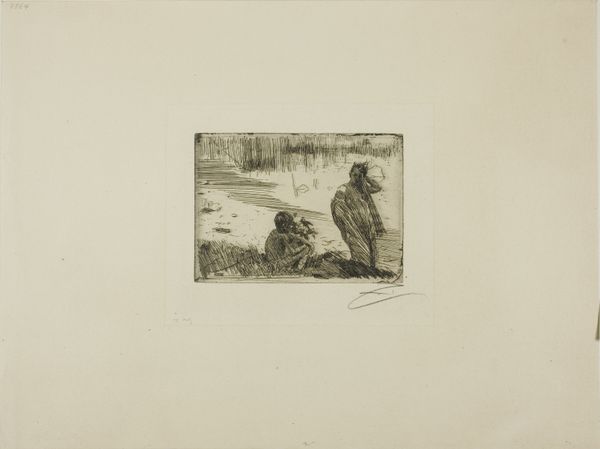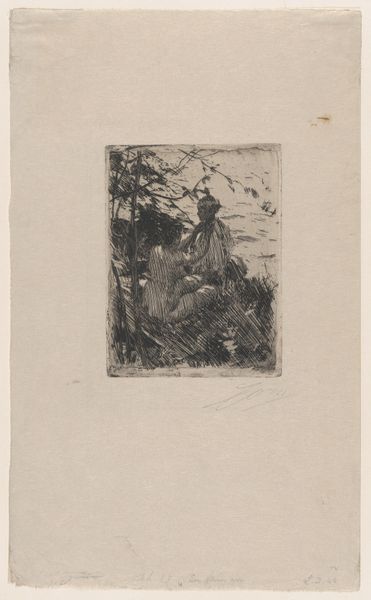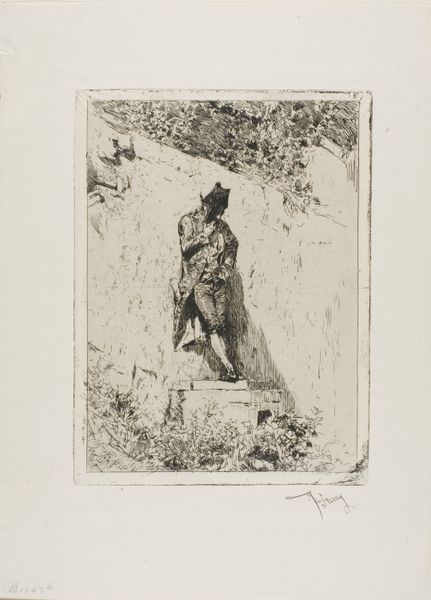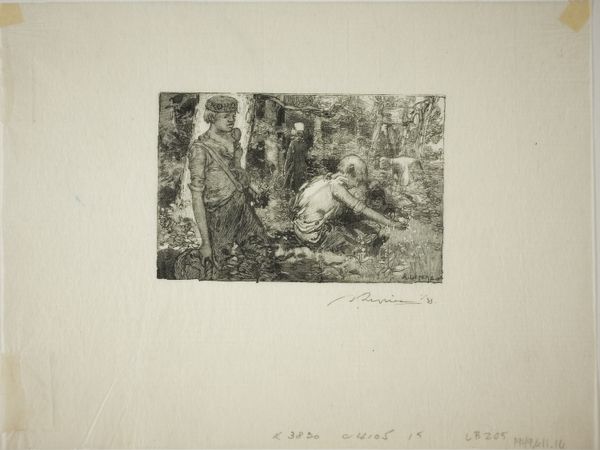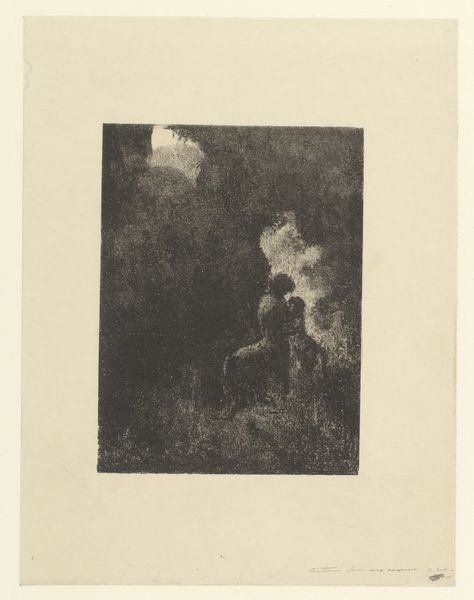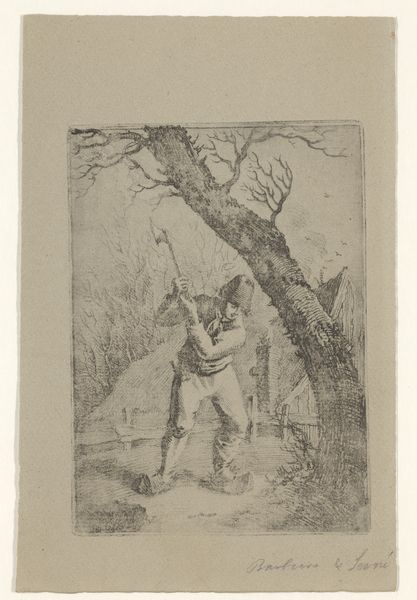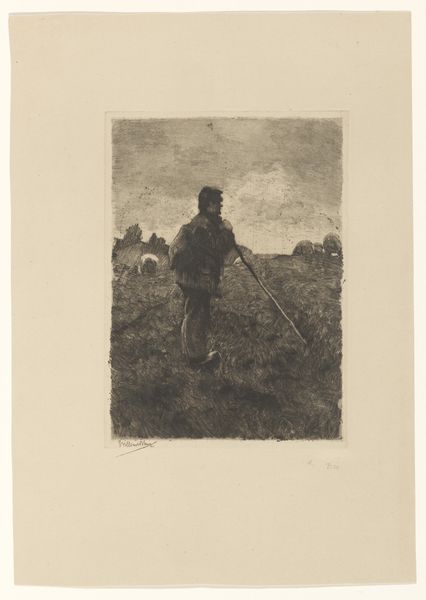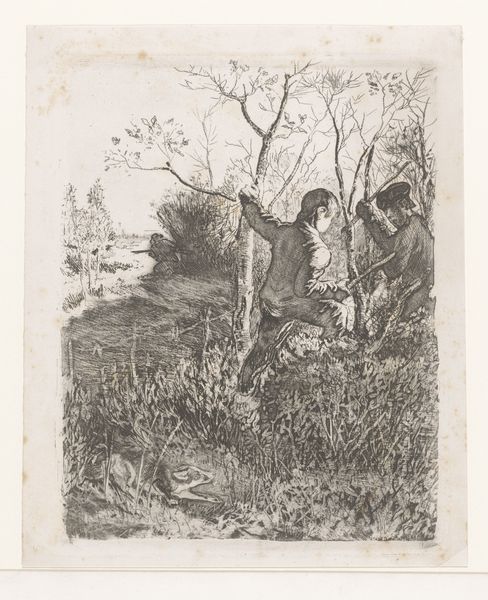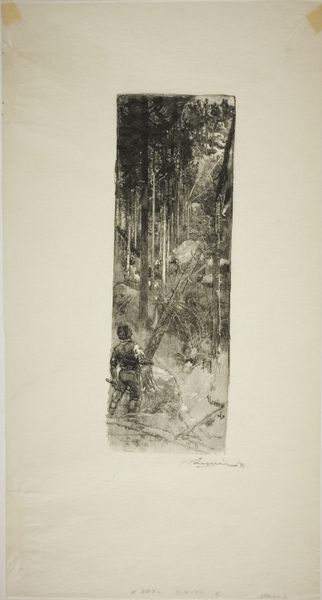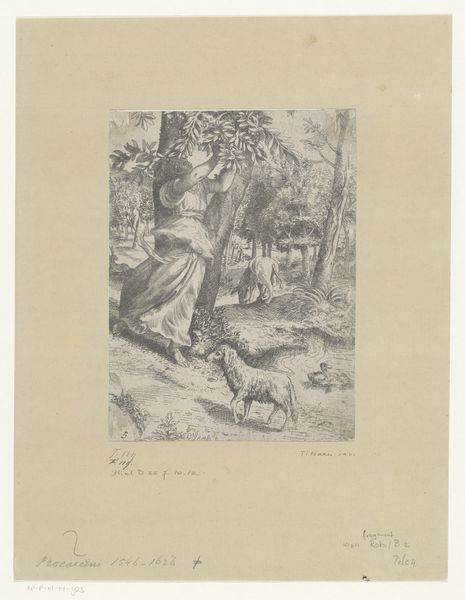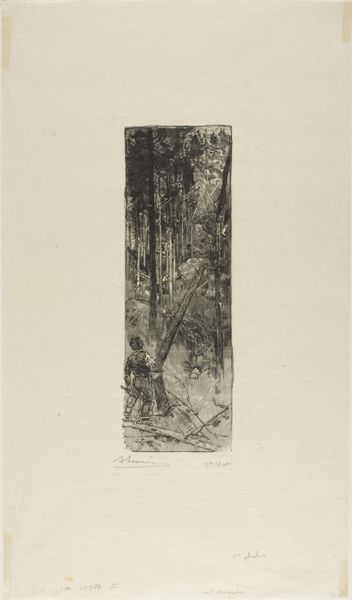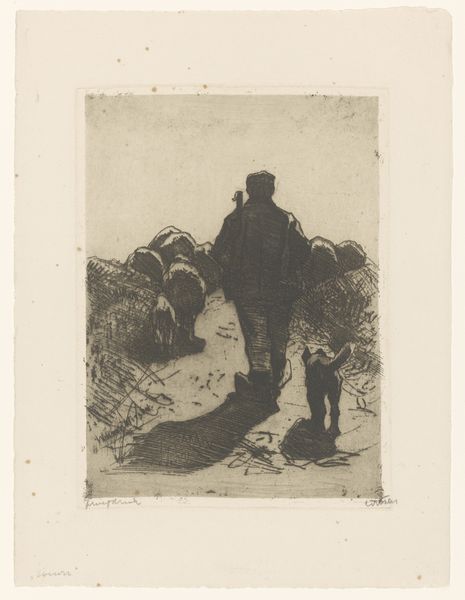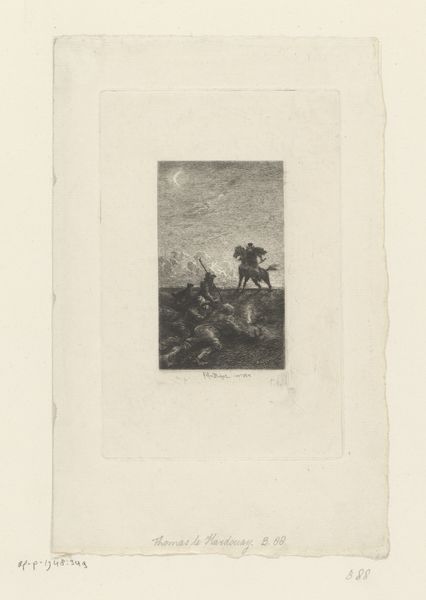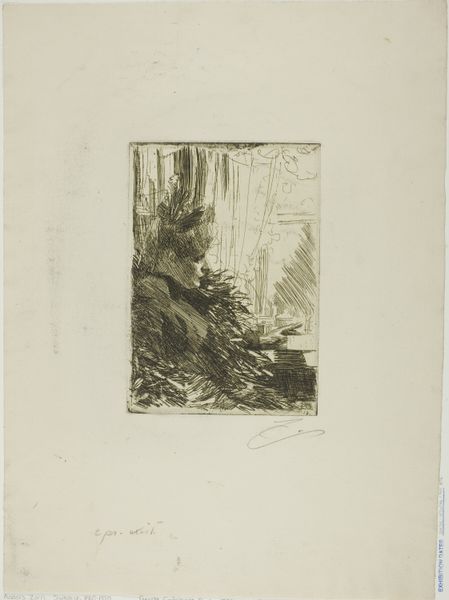
drawing, print, paper, engraving
#
drawing
# print
#
landscape
#
paper
#
underpainting
#
france
#
genre-painting
#
engraving
#
watercolor
#
realism
Dimensions: 82 × 105 mm (image); 179 × 169 mm (sheet)
Copyright: Public Domain
Editor: So, this is "Root Extractors" by Auguste-Louis Lepère, possibly from between 1887 and 1908. It's a print, a drawing, an engraving on paper and the scene feels...laborious. What compositional elements strike you as significant? Curator: The immediate point of interest is the densely worked foreground, almost vibrating with the energy of the laborer. Note the stark contrast in textures between the chaotic foreground and the more open background scene with other people at leisure. The composition directs the viewer's eye to the texture of work in this zone. Editor: Yes, that contrast is really pronounced. How do you think the artist uses line and value to convey that sense of labor? Curator: The artist employs a rich vocabulary of short, staccato lines to describe the rough texture of the soil and the intense physical exertion. The use of dark values creates a sense of weight and grounding, anchoring the figure to the earth. Do you notice how the implied lines of the tool lead us into the dark underpainting? Editor: Absolutely. And is it meant to contrast the rooted man with people casually walking nearby? Is there a certain intended relationship or interaction in the painting, perhaps expressed using semiotics or symbolism? Curator: The framing accentuates his separation and dedication to working with the earth. It directs the viewer to the composition, materials, technique, and texture to construct a meaning about rural toil. Editor: I see. It’s the materiality of the printmaking, the artist's focus on the grounded worker and his labor. Very interesting to think about Lepère's attention to form in that light! Curator: Indeed. Through such close observation of form, one can perceive an underlying statement about labor and existence within rural life.
Comments
No comments
Be the first to comment and join the conversation on the ultimate creative platform.
